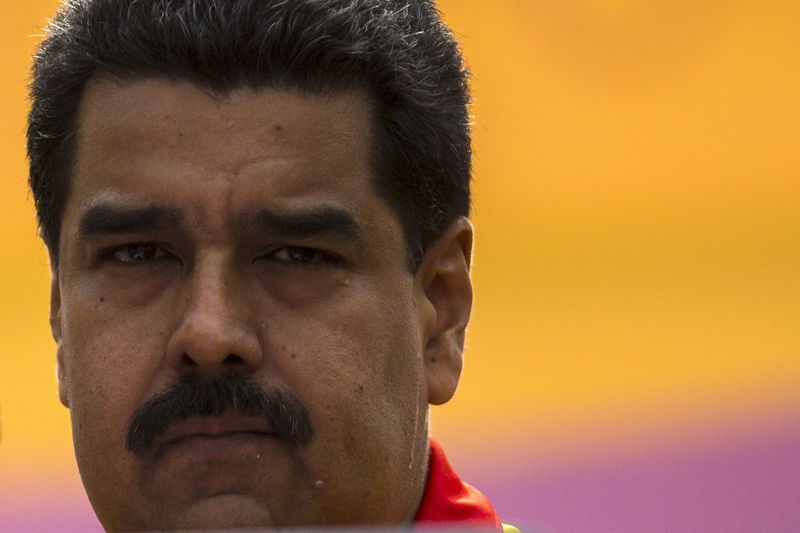By Rodrigo Campos
NEW YORK (Reuters) - A group of institutional investors holding roughly 13 percent of Venezuela's foreign debt said on Monday it will not back any restructuring plan that does not imply equal treatment for all creditors.
The government of President Nicolas Maduro has halted almost all foreign debt payments, leaving Venezuela, which has a debt load of around $60 billion in direct and subsidiary foreign bonds, in default.
The group, called the Venezuela Creditors Committee, said in a statement it seeks a consensus for collective action "to avoid disruptive and costly legal action around the globe in pursuit of claims designed to advantage certain creditors at the expense of theirs."
Actions by the group, which had largely stayed out of the spotlight, could undercut any side deals between the government and various creditors of specific debt issues. In addition to holding sovereign debt, billions are owed to creditors holding bonds issued by state oil company Petroleos de Venezuela (PDVSA) and state-run power utility Electricidad de Caracas.
The announcement shows investors holding the defaulted paper are getting more organized, but most market observers agree that bondholders are unlikely to begin pursuing legal claims against Venezuela soon.
U.S. financial sanctions make restructuring all but impossible. In addition, Maduro's haphazard approach to economic policy has left bondholders believing that he would not be able to conduct a serious debt negotiation.
Venezuela's benchmark 2027 U.S. dollar-denominated sovereign bond is currently bid at 28.5 cents on the dollar. <VE008013667=>
"The Committee commits to seek to resolve Venezuela's debt problems in a way that will assure fair treatment of all creditors of equal rank," said the statement. The group's over $8 billion in holdings are evenly split between republic and PDVSA bonds, according to Mark Walker, managing director of Millstein & Co, advisor to the group.
"Our approach will make the process shorter and less costly," Walker wrote in an email. "Concerted and collective action is the gold standard."
Venezuela has already made payments to certain PDVSA and government creditors. This includes a $90 million interest payment completed around early April on a bond largely purchased in 2017 by Goldman Sachs Group (N:GS), a PDVSA note maturing in 2022 <VE112689168=> dubbed the hunger bond by opposition political groups.
They claimed at the time the payment would fuel hunger in Venezuela by depriving the government of foreign exchange to import food.
Reuters reported in late April that PDVSA began making payments to some holders toward $100 million it owes in interest on a bond maturing in 2020. That bond, which carries an 8.5 percent coupon, is trading at 84.125 cents on the dollar, according to Thomson Reuters data. <VE151299784=>
The state-owned oil company used Citgo Petroleum, its refining unit in the United States, as over 50 percent collateral on that bond and may be complying with the payment in order to avoid putting the valuable refinery at risk in a potential legal battle.
"The Committee wishes to put (Venezuela and PDVSA) on notice that it will hold (them) responsible for all costs and expenses incurred in investigating all defaults and pursuing any and all remedies available," according to the statement.
Maduro has blamed financial sanctions imposed by the United States for preventing international transfers. However, the sanctions do not block routine operations such as debt payments.
